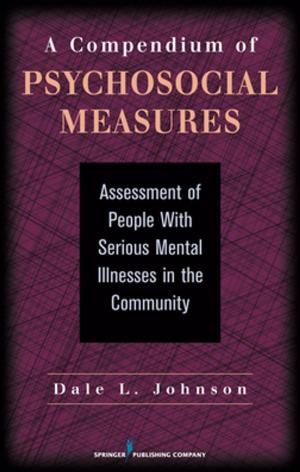Psychological Masquerade
Distinguishing Psychological from Organic Disorders
Nonfiction, Health & Well Being, Psychology, Clinical Psychology| Author: | Robert L. Taylor, MD | ISBN: | 9780826101112 |
| Publisher: | Springer Publishing Company | Publication: | February 27, 2007 |
| Imprint: | Springer Publishing Company | Language: | English |
| Author: | Robert L. Taylor, MD |
| ISBN: | 9780826101112 |
| Publisher: | Springer Publishing Company |
| Publication: | February 27, 2007 |
| Imprint: | Springer Publishing Company |
| Language: | English |
When faced with a patient whose psychological symptoms may stem from an organic, or medical, condition rather than psychology, how does the practitioner determine exactly which is the true case? To facilitate this process and give psychologists, social workers, and nurses a useable guide to assessment, Robert Taylor created Psychological Masquerade and has updated it to be the most complete handbook you will ever need in the field.
New chapters on violent behavior, amnesia and dementia, sex obsession, and Munchausen-by-Proxy fill out the guide and numerous case studies help clarify diagnostic criteria and provide a welcome hands-on approach to caring for clients in this delicate balance. As a further enhancement of the text as assessment tool, self-tests for hypothetical cases are included as are specific clinical tests that aid in clue gathering.
This is the perfect clinical guide for any practitioner who is likely to come into contact with psychological masquerade among their clients and will be a welcome addition to the practitioner's toolbox.
When faced with a patient whose psychological symptoms may stem from an organic, or medical, condition rather than psychology, how does the practitioner determine exactly which is the true case? To facilitate this process and give psychologists, social workers, and nurses a useable guide to assessment, Robert Taylor created Psychological Masquerade and has updated it to be the most complete handbook you will ever need in the field.
New chapters on violent behavior, amnesia and dementia, sex obsession, and Munchausen-by-Proxy fill out the guide and numerous case studies help clarify diagnostic criteria and provide a welcome hands-on approach to caring for clients in this delicate balance. As a further enhancement of the text as assessment tool, self-tests for hypothetical cases are included as are specific clinical tests that aid in clue gathering.
This is the perfect clinical guide for any practitioner who is likely to come into contact with psychological masquerade among their clients and will be a welcome addition to the practitioner's toolbox.















